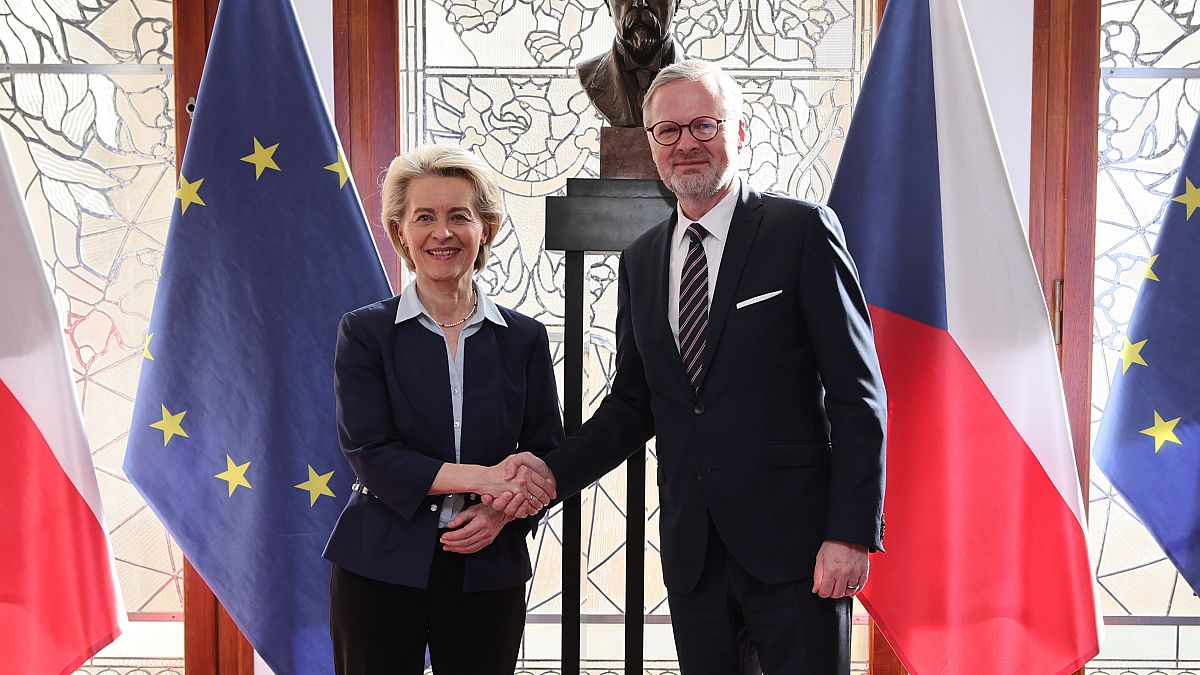European Commission President Ursula von der Leyen is facing a challenging task of balancing too many men vying for too few prestigious economic roles within the EU executive. She needs to find 26 other names to fill out the Commission’s senior ranks, while ensuring she meets the requirement of having at least one candidate from each EU member state. This challenge is further complicated by countries like Belgium and Bulgaria, which are embroiled in internal politics following recent elections. Von der Leyen also needs to ensure a balance in terms of policy briefs and gender representation among her senior staff.
One of the key issues von der Leyen is facing is the fierce competition for major economic roles within the EU, which determine the course of the single market. Countries like Czechia, represented by Prime Minister Petr Fiala, are pushing for their candidates to secure these plum roles. Fiala has proposed Jozef Síkela for a prestigious economic position, highlighting Czechia’s importance at the center of Europe. However, many other countries are also vying for these roles, making it a challenging balancing act for von der Leyen. MEPs at the European Parliament will scrutinize the overall balance of different political groups and gender representation, adding to the complexity of the situation.
As the first female president of the EU executive, von der Leyen has pledged to ensure full gender equality within her college of Commissioners. She has requested governments to propose both female and male candidates for the roles, but so far, most nominations have been men. Von der Leyen has the final decision on which candidates to pick, but some governments are reluctant to relinquish their power in selecting candidates. The issue of gender balance is further complicated by the fact that some countries argue they have previously sent strong female candidates to Brussels, reducing the pressure to do so again.
The upcoming meetings with Czech Prime Minister Petr Fiala and Romanian Prime Minister Marcel Ciolacu will be crucial for von der Leyen as she navigates the complex process of selecting candidates for the Commission. These discussions will likely involve negotiations over which candidates will secure prestigious economic roles and how to ensure a balance in terms of policy briefs and gender representation. The pressure is on von der Leyen to find the right mix of candidates that satisfies both member states’ expectations and the EU Parliament’s requirements for gender equality.
One potential solution to the gender balance issue could involve replacing some male candidates with female alternatives, as rumors suggest may be the case with incumbent Hungarian Oliver Várhelyi possibly being replaced by MEP Enikő Győri. Von der Leyen may face challenges in convincing member states to nominate more female candidates, but she remains committed to her pledge for gender equality within the Commission. The upcoming weeks will be crucial for von der Leyen as she seeks to finalize the lineup of the Commission’s senior staff and navigate the intricate dynamics of EU politics.
In conclusion, Ursula von der Leyen faces a daunting task of balancing competing interests and demands as she selects candidates for prestigious economic roles within the European Commission. The pressure to ensure gender equality, political balance, and representation from all member states adds complexity to the process. The upcoming meetings with Czech and Romanian Prime Ministers will be crucial in shaping the composition of the Commission’s senior staff. Von der Leyen’s ability to navigate these challenges and find a satisfactory solution will be a test of her leadership and diplomatic skills in the coming weeks.





















